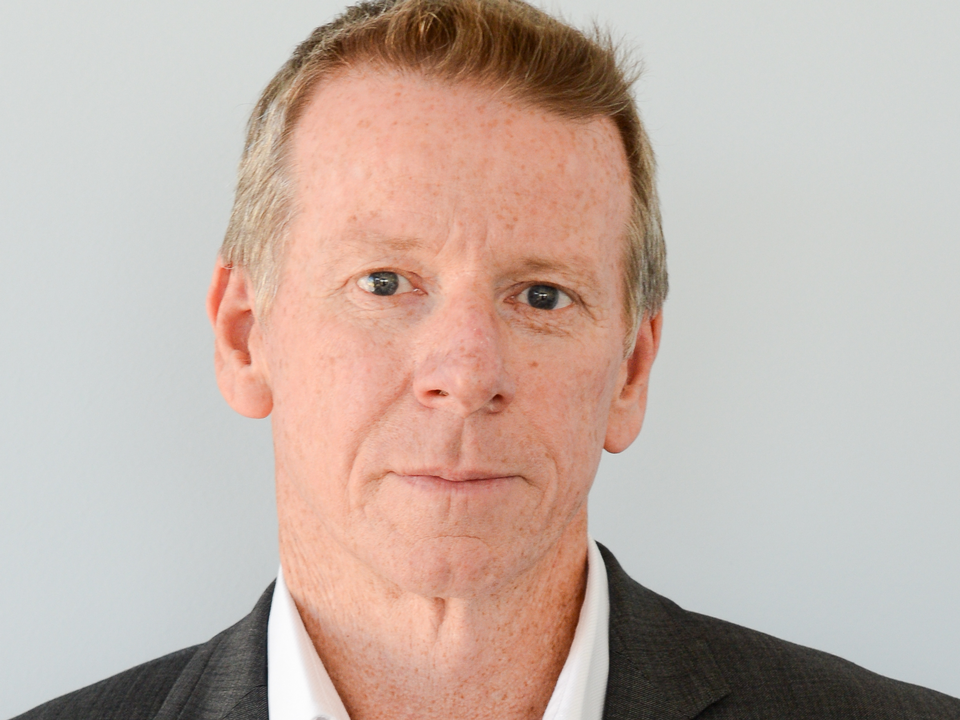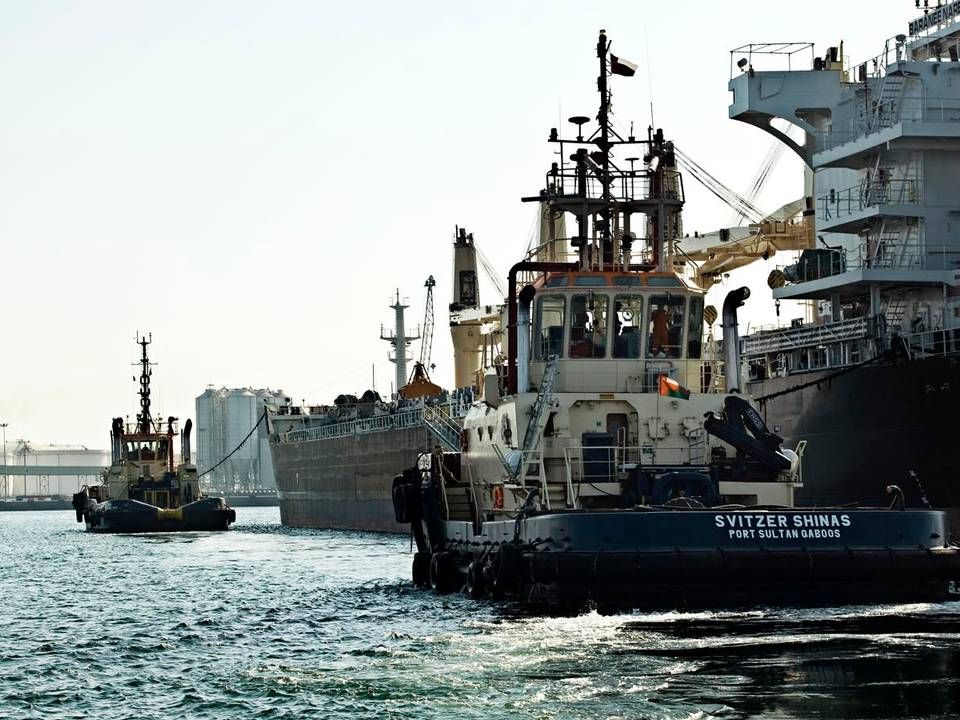Robert Uggla is now launching the strategy for Svitzer

The pressure seemed to mount in more than one respect when Robert Maersk Uggla was appointed CEO of towage and salvage company Svitzer after serving three years as head of the Maersk-controlled tanker carrier Broström.
Apart from his status and the pressure which is always on the shoulders of Robert Uggla as the grandchild of Maersk McKinney-Møller - and son of Ane Uggla, who serves as the vice chairman of the board of directors at Maersk Group, and additionally serves as the chairman of the foundation which controls the shipping and oil conglomerate - with the job as CEO of Svitzer, Robert Uggla took the responsibility of heading a company with around 4,500 employees and 500 vessels operating in 40 countries.
But it is also a company where the then 33-year old Robert Uggla faced an increasing number of problems on Svitzer's largest single market, Australia, which were triggered by an investment in listed Australian company Adsteam Marine about five years before he became CEO. This investment turned out to be particularly expensive for the company.
To put it simply, Robert Uggla was given the task of cleaning up in Australia, and under his management, many impairments were made at Svitzer on the Adsteam Marine investment in the following years at a level which in total came to about USD 500 million.
Cleaning up Australia
Starting off as a promising market, still Svitzer's largest along with Europe - about 40 percent of revenue comes from each of the two continents - Australia developed into a financial nightmare with overcapacity and high costs as well as tough competition at the ports and in the offshore industry for towage and salvage companies. This development also made the listed shipping group in Hong Kong, Pacific Basin, pull out of the market and sell its entire business at severe losses to Dutch Smit Lamnalco in December of 2014. Today, Smit Lamnalco cooperates with Svitzer in three Australian ports.
Robert Uggla is not ready to declare the troubles over in Australia, when speaking to ShippingWatch, but..:
"We are not finished yet. We still have challenges in Australia, but we have come a long way. The results show that we are seeing improvements," says Robert Uggla who, with Svitzer's financial report for 2015, can document a significantly better result.
"We have executed our plan for 2015. Our operating margins are the best for Svitzer in at least 10 years."
Svitzer rival wins Concordia wreck contract
Svitzer's numbers went into the black with a result of USD 120 million in 2015 compared to a deficit of USD 270 million in 2014 - a loss which was driven by impairments on Australian Adsteam Marine. The company advanced in the underlying result to USD 116 million from USD 82 million in the previous year.
In 2015, Svitzer picked up the pace with a new global strategy where the company entered into long-term contracts to an extent which has not been seen for many years, and where a majority of contracts were entered into in new growth markets which will contribute to spreading out the company's global exposure, where Australia and Europe in particular have been in the spotlight.
"In 2014, we were awarded 14 contracts and 80 percent of them are in new markets, which will start up in 2017 and 2018. This is why we will see the financial effects of these contracts over the course of the next few years, and they will definitely have good returns over a long period of time," Robert Uggla says.
Greater global coverage
"We have traditionally been very dependent on Europe and Australia, but we are working strategically on a more global portfolio. So we are highly focused on new markets. In 2015, we have established two new joint ventures in China, most recently in November in Qingdao, the world's fourth largest port, just as we have entered Brazil, where we have acquired a small company as a platform for growth, and we have also won an exciting contract in Costa Rica. Brazil is a huge market, but very protected in tugboat activities in ports with just two major players."
A wave of mergers in Europe as well as globally is currently washing over the towage and salvage sector, Robert Uggla confirms. Svitzer is a part of this, also in salvage. On May 1st last year, Svitzer Salvage merged activities with US company Crowley Maritime (Titan Salvage, ed.), which is publicly known for the salvage of the cruise liner Costa Concordia in the Mediterranean. The merger formed a new global company with the name Ardent, and this new company is a market leader in wreck removal, measured in size.
Svitzer rival wins Concordia wreck contract
Salvage is the smallest part of Svitzer's aggregate business, which is dominated by tugboat activities and where new constellations are highly sought after, says Robert Uggla:
"We are seeing consolidation in towage activities, in Europe as well. Many smaller operators locally face great financial challenges right now, and this means that many are forced into joint ventures or divestments. We have seen this in Australia (Pacific Basin, ed.) and in Europe."
Dutch towage and salvage giant Royal Boskalis Westminster merged its European towage activities with Kotug International back in December. The two parties signed a Memorandum of Understanding at the end of 2014 for a joint venture, which was formalized in the merger two months ago, wrote Boskalis and Kotug in a statement.
The two companies' activities have now been transferred into a 50/50 joint venture with the Boskalis subsidiary Smit and Kotug under the new name of KOTUG SMIT Towage.
Svitzer in large-scale merger with US-based Crowley
"This joint venture is an important next step in the implementation of our harbour towage strategy aimed at concentrating and expanding our harbour towage services in regional partnerships," said Peter Berdowski, CEO of Boskalis, which has already initiated similar cooperations in Smit Lamnalco, Keppel Smit Towage and SAAM SMIT Towage. The new joint venture includes Smit's activities in Belgium, The Netherlands, and the UK with a total of 11 ports, which can be serviced by 65 vessels in all.
The global towage industry as a whole - as well as for Svitzer's largest business, harbor towage - is very challenged by the overall slowdown in the shipping industry across all individual segments with tanker and gas as well as energy products being the few exceptions.
Towage majors merge European activities
"Svitzer has great opportunities for growth, we are active in 40 countries. Looking at China for instance, we are operating in just two ports, so we have big possibilities for growth. We still have to do so, but we would also like to be humble and understand that many of our customers are under a lot of pressure right now. This also concerns the container sector as well as dry bulk. This will definitely also affect Svitzer," Robert Uggla says.
Svitzer to use Maersk name to enter Asia
Svitzer lands vital support for new collective agreement
Svitzer in joint venture with China's Qingdao Port





















